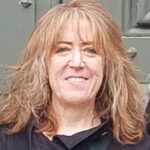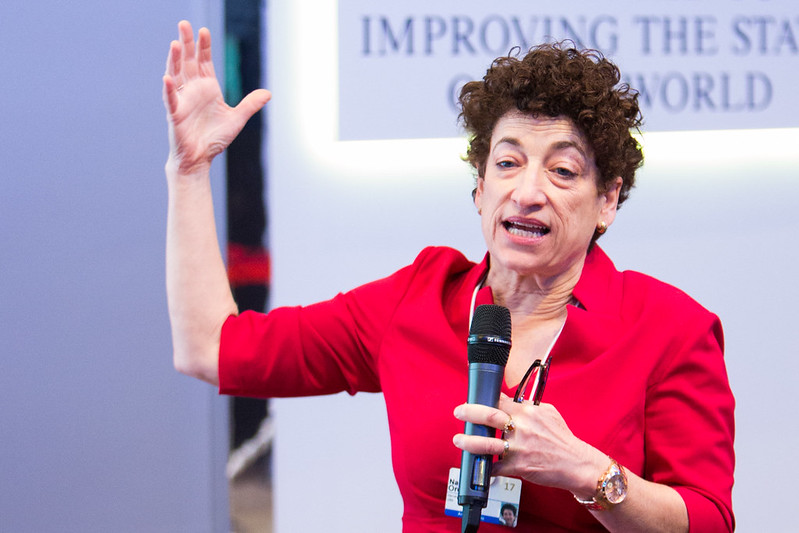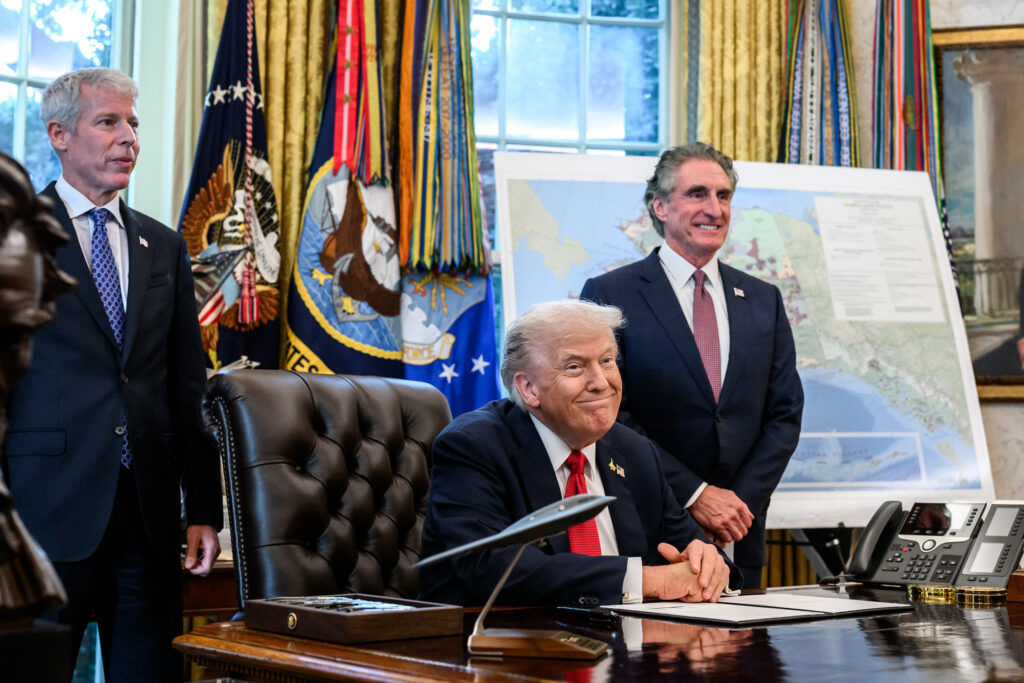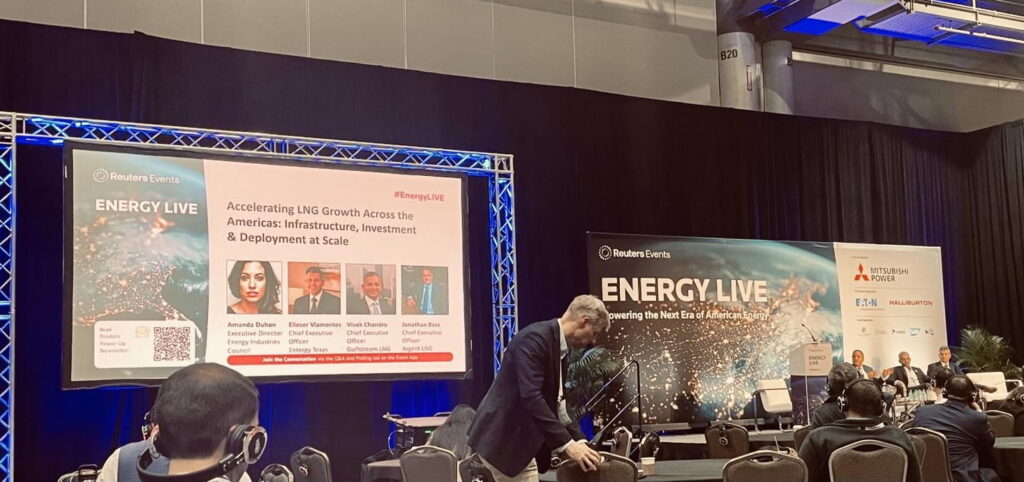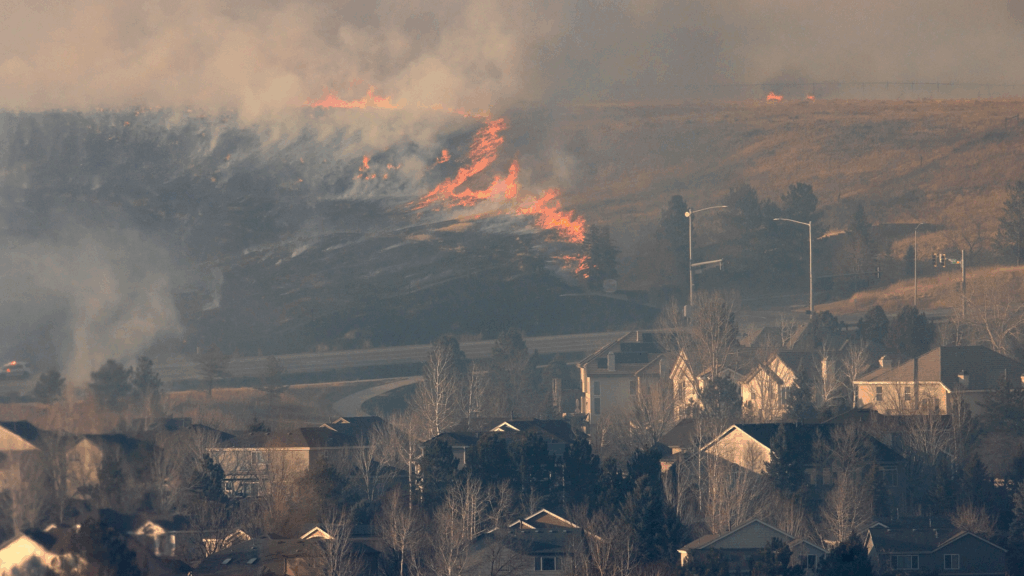In an interview with Rachel Donald of the podcast Planet: Critical, science historian Naomi Oreskes spoke about her new book, The Big Myth: How American Business Taught Us to Loathe Government and Love the Free Market, cowritten with Erik M. Conway. She explored why our climate is in crisis, detailing how institutions, lobbyists, and corporations continue to undermine democracy; and why a renewable world threatens the powers that be. Ultimately, Oreskes points out that the climate crisis is not a scientific problem, but a political, economic, and social issue.
Oreskes is a professor at Harvard University who co-authored the bestselling book Merchants of Doubt, and has written nearly 200 scholarly papers and popular articles. Her opinion pieces have appeared in The New York Times, The Washington Post, the Los Angeles Times, the Times of London, and many others.
The Planet: Critical podcast uncovers the big picture of the climate crisis by mapping the energy, economic, and political crises surrounding it. The following is a partial transcript of Donald and Oreskes’ conversation, lightly edited for clarity. The whole interview can be heard by visiting Planet: Critical.
RACHEL DONALD
My first question for you is, why is the world in crisis?
ORESKES
To me, the most powerful framing of why the world is in crisis is the one that Pope Francis used in his first encyclical on climate change and inequality, where he connected what I see as the two biggest and related crises that we face.
The first is climate change, which is the thing I work on specifically. Scientists have been warning for decades that burning fossil fuels puts greenhouse gases in the atmosphere. These change the climate in adverse ways that are difficult to adapt to, and we are now seeing that all of the predictions that scientists made back in the fifties, sixties, seventies, and eighties are all coming true — worsened hurricanes, worsened wildfires, worsened droughts, which are affecting food supplies, damaging communities, killing people, and damaging biodiversity.
There’s a big social justice component to this problem, which is partly why the Pope became involved in the issue, because it connects directly to inequality. So we also live in a world of tremendous global inequality, both between countries and within wealthy nations.
Inequality has always been with us, but it’s become much, much worse in the last 40 years, largely due to neoliberal policies that have promoted the concentration of wealth in the hands of very small numbers of people. This has made it much harder to redistribute wealth in fair ways through minimum wage laws or taxation structures.
The climate crisis is directly related to inequality. It’s directly related to injustice. As if that weren’t enough, many of the worst impacts of climate change will most adversely affect the poor because they have fewer resources with which to protect themselves against things like heat waves or intensified storms.
DONALD
You published Merchants of Doubt, a great book on climate denial and how the fossil fuel industry created a PR campaign to obscure data, offset responsibility onto consumers, and essentially delay when we would have to take action. The Big Myth is also about the campaign to make neoliberalism the dominating ideology in American life. My question is, when power seems to rule over the story and the narrative, what is it that we can do?
ORESKES
This is a David and Goliath story. The powers that be are powerful. They’re effective, they have a lot of money. They put millions or hundreds of millions of dollars into their propaganda campaigns, their media campaigns, advertising, public relations, and they’ve been doing this for a long time. So it’s no surprise that many of us have been confused on the issue because they’ve been trying to confuse us.
And it’s no surprise that they have held governments hostage because whenever governments move to do something meaningful in the climate space, the powers that be threaten to withhold funds, they lobby, they campaign, they threaten to move offshore, whatever it is that they do.
If we look at the big changes in history, like the abolition of slavery in the United Kingdom or the emancipation of enslaved people in the United States, these things didn’t come about because scientists proved that Black people were equal to white people. They came about because ordinary people mobilized and made the ethical argument that this was wrong, and that ordinary people should have to say no to this.
One of the great stories I love about the abolition of slavery involves when ordinary people mobilized against the slave trade in the United Kingdom by boycotting sugar.
This is a little-known piece of history in the United States. In the mid to late 18th century, the slave trade was widespread and there was not a lot of public opposition to it in the United Kingdom. But that changed pretty quickly at the very end of the 18th and into the early 19th century, and one of the reasons was that ordinary people organized a consumer boycott of sugar. This called people’s attention to how ordinary people, even if they weren’t enslavers or slave traders, were still participating in the slave trade because they benefited from cheap sugar that had been raised and cut by enslaved people in the Caribbean.
The boycott of sugar raised public awareness about this issue and shifted the public discourse away from slavery as something that was normal and accepted to something that was now no longer acceptable. That change happened fairly quickly within about 30 years. So, it’s a little depressing in the case of climate change because we know there’s an urgency to this issue. We know we can’t afford to wait another 30 years, but we already have a climate action movement underway. So one of the questions is, how do we accelerate that movement? And that’s a really tough question, which you have to put to people who are experts on social movements, which I am not.
DONALD
The availability of information shows that we really do have everything ready to go. We have new economic ideas, new geopolitical ideas, and new ideas on how to do democracy better. We are currently reliant on outdated 20th-century tools that no longer work for us. It’s hard to imagine a world without fossil fuels, especially when it comes to military operations. Can you discuss what a renewable world would look like?
ORESKES
Yeah, that’s an interesting question. The fossil fuel industry wants us to think we can’t run a military, aviation industry, or live without fossil fuels. But we know that’s wrong. Renewable energy works well as distributed energy and could be beneficial, especially in places like Africa with limited energy infrastructure.
There’s a lot of interesting work that’s been done on micro and mesoscale energy grids, so renewable energy, in that sense, really conserves democracy. It can enable us to have power systems closer to home that we’re more likely to have democratic governance over. And that’s a good thing. But it’s definitely something that some governments don’t want because I think they are afraid they would lose centralized power. This is a place where, in my opinion, liberals and conservatives could come together. Historically, conservatives have not liked centralized national power. They have tended to argue for distributed political power and distributed energy. Power can actually work hand in hand with distributed political power.
DONALD
It’s fascinating that you’re trying to find common ground on this polarized issue. It seems deliberate, which has stalled the conversation – it’s still a debate instead of a conversation.
ORESKES
Right. As I said, the science isn’t debated, but it is contested. And as you just said, we know that it is deliberate. This is what Eric Conway and I wrote about in our new book. We know the emergence of doubt came because certain people didn’t want us to understand the reality of climate change. The fossil fuel industry didn’t want us to understand it because they’re incredibly profitable.
I just read something about ExxonMobil’s quarterly profits. It was about 400 million. I might have that wrong, but hundreds of millions of dollars just in a single quarter in profits. So obviously they don’t want to lose that. They’ve got a good thing going and they’d like to keep it going.
My work with Erik demonstrates that climate change is not just about the profits of the fossil fuel industry, but also about the political ideology supporting capitalism. In our new book, The Big Myth, and in Merchants of Doubt, we discuss the close link between climate change and market fundamentalist ideology, as well as claims about the connection between capitalism and political freedom.
We think those claims are wrong. We think history shows they’re wrong. But because many conservatives have bought into this idea that if you compromise capitalism, you’ll lose political and social freedom, they have been reluctant to admit the reality of market failure. They’ve been reluctant to admit the places where capitalism isn’t working well for fear that the only alternative is dictatorial communism. One of the arguments of our new book, and consistent with what you just said about having a conversation, is we need to open up a place to have a conversation about what the alternatives are. Because the market fundamentalists and the neoliberals of the mid-20th century created a false dichotomy, claiming that the only options we had were unregulated capitalism, or very minimally regulated capitalism, versus Soviet-style, centralized planning and politics.
DONALD
I thought back to Amy Westervelt’s investigation on the Atlas Network, a group of 150 think tanks that are deliberately sowing dissent around climate activists, and trying to get them labeled as though they’re on the way to terrorism because they are doing effective work.
It seems like even in a world where everyone is constantly connected, the overwhelming amount of information is now, perhaps, working against us. And the fact that it’s difficult to distinguish between real news and fake news if you’re not close to the levers of power.
ORESKES
I think there’s always been disinformation. In class today, I just taught Edward Bernay’s book on propaganda published in 1928, nearly 100 years ago. So on one level, none of this is new. But on another level, the problem is the speed at which this all takes place. It becomes incredibly difficult to counter disinformation because, you know, it’s like the game of whack-a-mole, right?
As soon as you answer one piece of disinformation, another piece has cropped up and then another and another, and it’s already halfway around the world before you’ve even had a chance to think about what an appropriate response should be. And this is why I think it is appropriate for people to be thinking about regulation of the internet.
There’s a long pattern in the history of technology of people thinking that technology will solve social problems, like disinformation. And it almost never works that way. If anything, it makes them worse. If you look at the history of radio, an amazing conversation takes place in the early 20th century about how radio will lead to world peace. Why? Well, we’ll all be able to communicate, and so all the misunderstandings that had led to warfare in the past, will be obviated. Well, look how that turned out.
Subscribe to our newsletter
Stay up to date with DeSmog news and alerts

